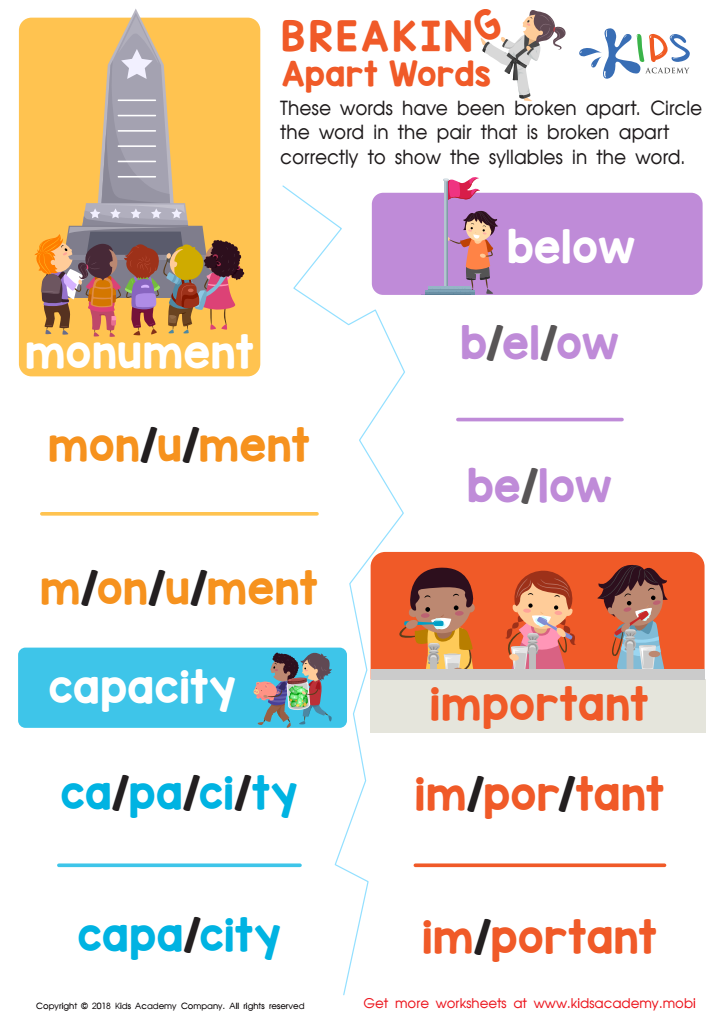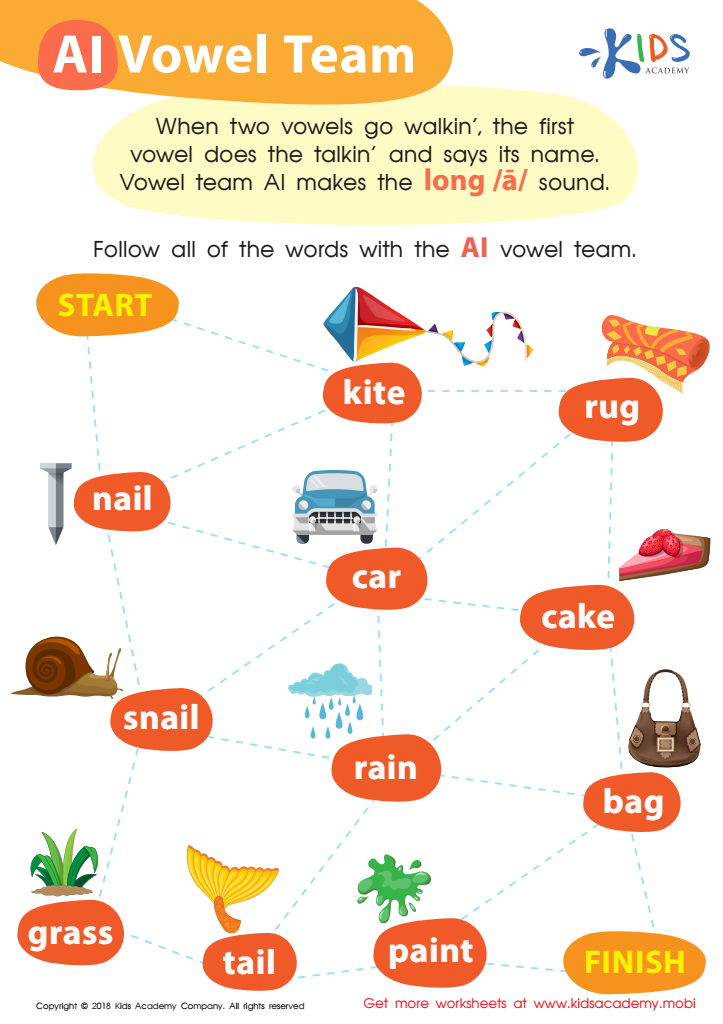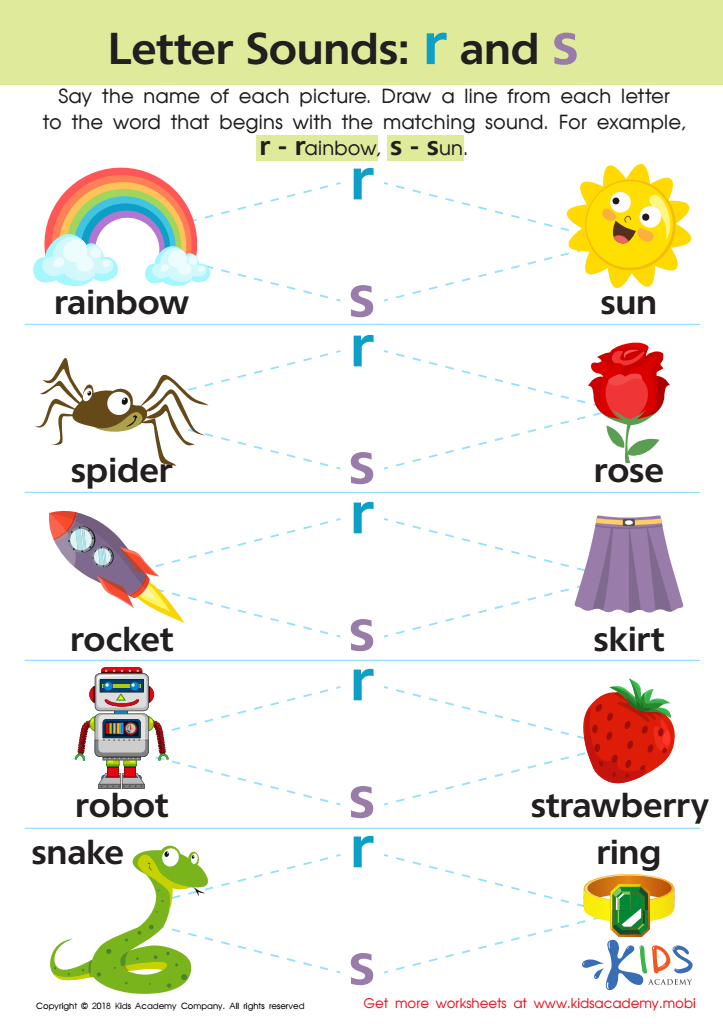Phonics skills enhancement Worksheets for Ages 4-8
3 filtered results
-
From - To
Enhance your child's reading journey with our Phonics Skills Enhancement Worksheets for Ages 4-8. Carefully designed to build foundational phonics, these engaging worksheets make learning fun and effective. Through colorful visuals, interactive exercises, and age-appropriate activities, kids develop critical skills like letter-sound recognition, blending, decoding, and word formation. Perfect for both classroom and home use, these resources support early readers in mastering phonics concepts at their own pace. Empower your young learner with enjoyable, educational tools that boost confidence and reading proficiency, setting the stage for lifelong literacy success. Discover our worksheets today!


Breaking Apart Words Worksheet


Reading: AI Vowel Team Worksheet


Letter R and S Sounds Worksheet
Phonics skills enhancement is crucial for children aged 4-8, as it forms the foundational building block for reading and literacy. Phonics teaches the relationship between letters and sounds, allowing children to decode words systematically. Early mastery of phonics skills benefits young learners by developing their reading fluency, improving comprehension, and building confidence.
When children understand phonics, they can tackle unfamiliar words, promoting independent reading. This skill is essential for academic success across all subjects, as strong readers are better able to comprehend and retain new information. Additionally, reading proficiency is linked with improved writing skills since children can apply their phonetic knowledge to spell words correctly.
For parents and teachers, investing in phonics education during the early years can prevent future learning difficulties. Children who struggle with reading often face challenges in other areas, leading to frustration and a potential decline in academic performance and self-esteem. Early intervention through phonics enhancement ensures that children develop a love for reading and learning, setting them on a positive educational trajectory.
In summary, phonics skills are pivotal in early childhood education, acting as the cornerstone of literacy. By prioritizing phonics instruction, parents and teachers can substantially enhance a child's educational journey and lifelong learning potential.
 Assign to My Students
Assign to My Students



















